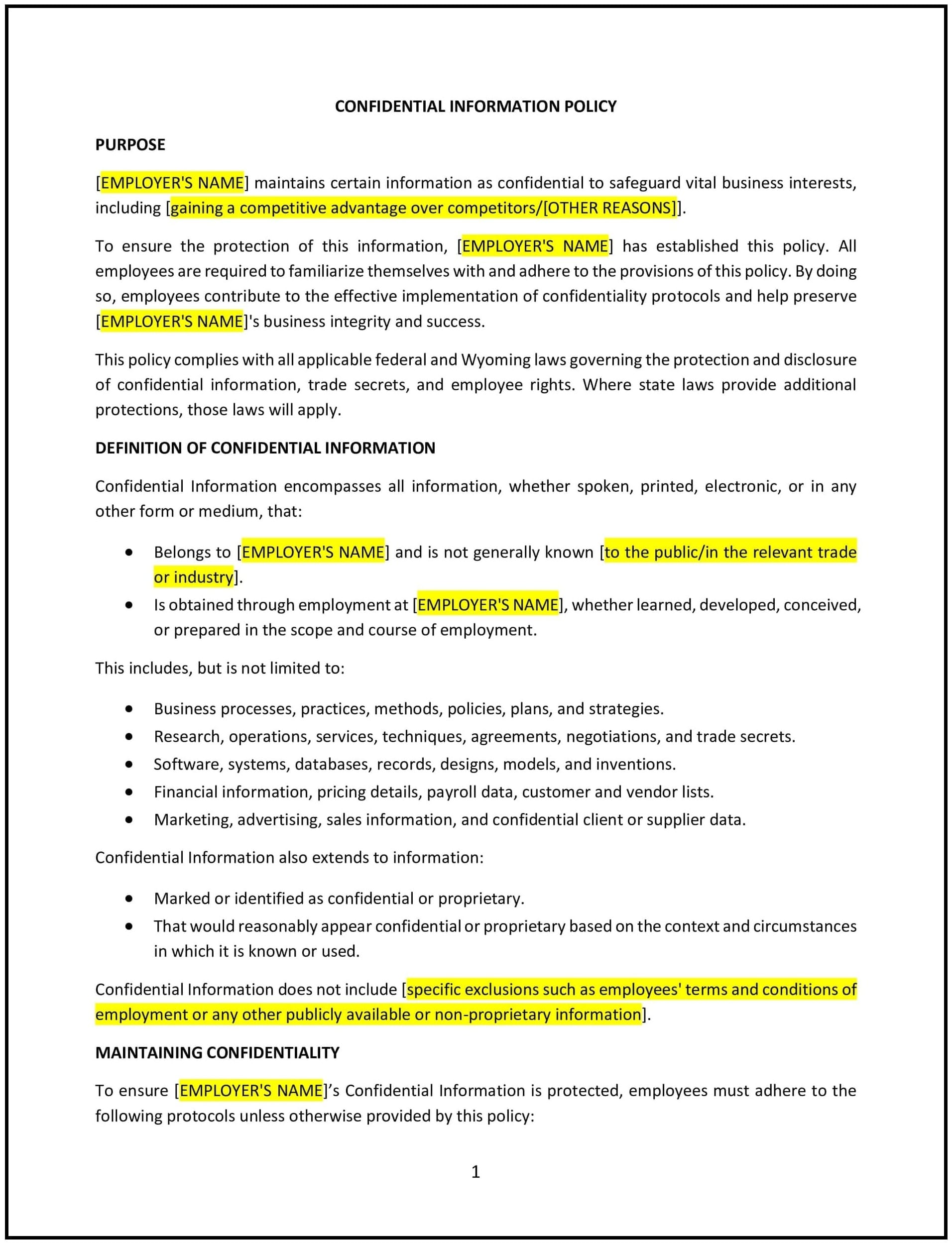Confidential information policy (Wyoming): Free template
Got contracts to review? While you're here for policies, let Cobrief make contract review effortless—start your free review now.

Customize this template for free
Confidential information policy (Wyoming)
In Wyoming, a confidential information policy helps businesses protect sensitive data, trade secrets, and proprietary information from unauthorized access or disclosure. This policy is particularly important in industries like energy, agriculture, and technology, where protecting intellectual property and confidential business operations is critical.
This policy outlines the types of information considered confidential, employee responsibilities, and the consequences of unauthorized disclosure, ensuring a clear framework for safeguarding company assets.
How to use this confidential information policy (Wyoming)
- Define confidential information: Clearly specify what constitutes confidential information, such as trade secrets, financial data, customer lists, and proprietary processes. Tailor the definition to include information specific to Wyoming’s industries and business operations.
- Outline employee responsibilities: Detail the steps employees must take to protect confidential information, such as using secure storage, limiting access to authorized personnel, and avoiding discussions in public spaces.
- Set guidelines for information sharing: Establish rules for sharing confidential information with third parties, including the use of non-disclosure agreements (NDAs) and secure communication channels.
- Address policy violations: Specify the consequences of unauthorized disclosure or misuse of confidential information, such as disciplinary action or termination, while adhering to Wyoming employment laws.
- Provide training: Educate employees on the importance of confidentiality and the procedures for handling sensitive information.
Benefits of using a confidential information policy (Wyoming)
A robust confidential information policy offers numerous benefits for Wyoming businesses:
- Protects business assets: Safeguards valuable intellectual property, trade secrets, and proprietary data from unauthorized access or disclosure.
- Supports compliance: Supports alignment with state and federal regulations, including data protection and privacy laws.
- Mitigates risks: Reduces the likelihood of data breaches or leaks, protecting the organization from financial or reputational damage.
- Encourages accountability: Clearly defines employee responsibilities, fostering a culture of trust and professionalism.
- Adapts to industry needs: Addresses specific confidentiality challenges in Wyoming’s key industries, such as energy, healthcare, and agriculture.
Tips for using a confidential information policy (Wyoming)
- Tailor to your industry: Customize the policy to reflect confidentiality challenges unique to your business and Wyoming’s economic landscape.
- Update regularly: Review and revise the policy periodically to align with changes in laws, technology, or business operations.
- Implement access controls: Use secure systems to limit access to confidential information based on job roles and responsibilities.
- Encourage reporting: Establish a clear process for employees to report suspected breaches or unauthorized access.
- Monitor compliance: Regularly audit information management practices to ensure adherence to the policy.